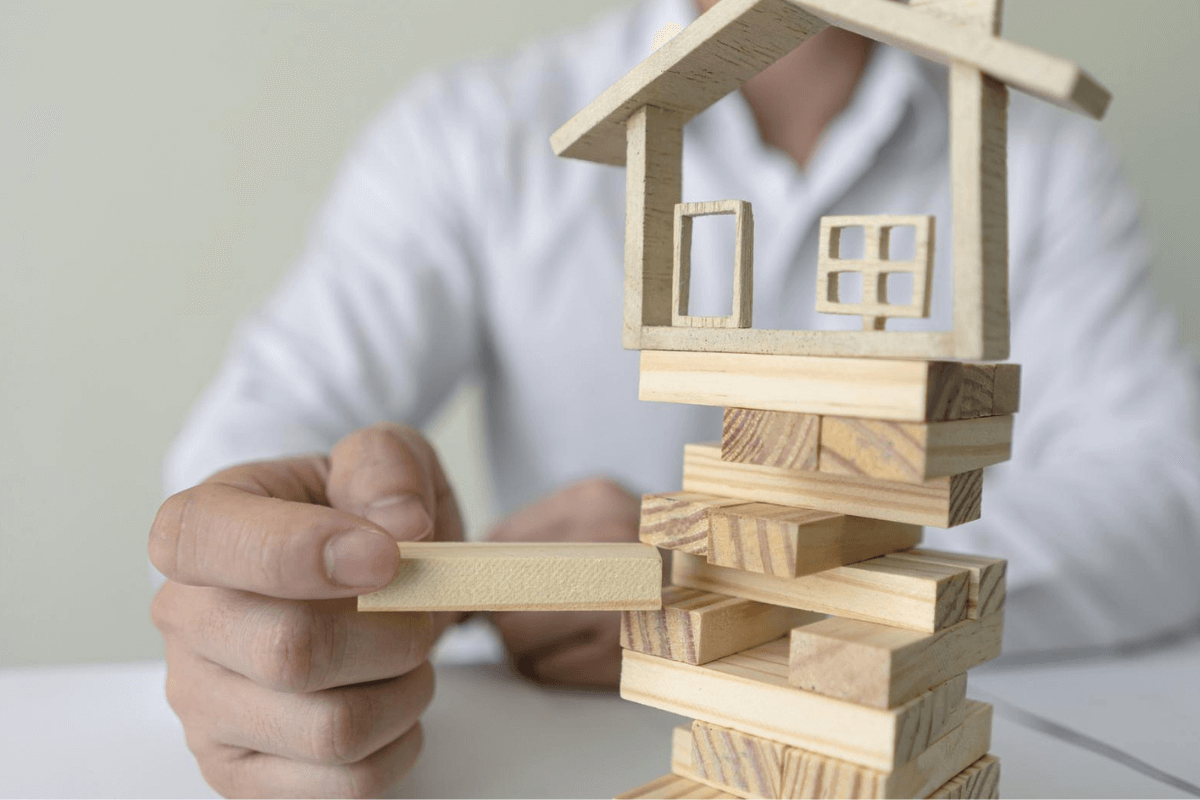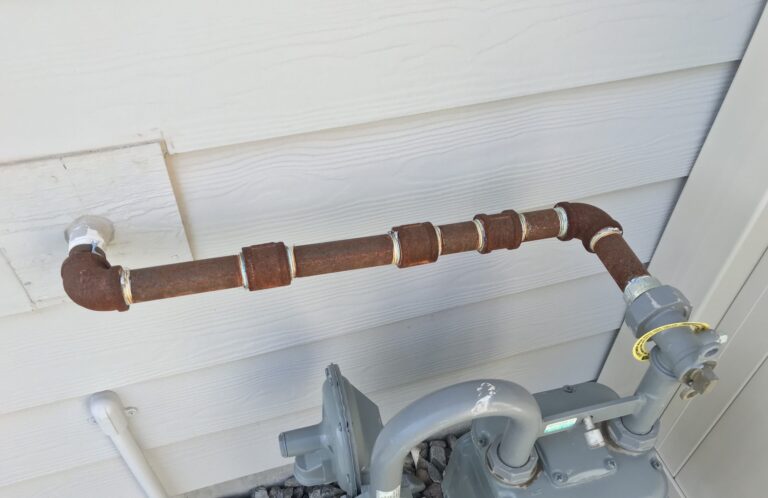9 Signs of a Housing Market Crash

Of the many questions worth asking when purchasing a new property, there’s one that should be at the forefront of any aspiring buyer’s mind:
“Is the housing market on the cusp of collapse?”
After all, as homeowners learned the hard way in 2008, housing crashes have dire implications. The Great Recession of that year forced 3.1 million Americans to file for foreclosure and displaced a staggering 10 million people in total.
Alas, finding answers to this crucial question is easier said than done now. While some pundits claim we’re in a housing bubble that’s soon to burst, others suggest there’s nothing to worry about. Ultimately, the best way to avoid being lumbered with an overvalued asset in a crumbling economy is to arm yourself with enough information to make up your mind.
So, in today’s article, we’ll attempt to shed helpful light on the topic. But, first, discover nine sure-fire signs of a housing market crash.
1. Home Prices Plateauing
With home prices increasing by 18.8% on average last year (a significant rise on the 10.4% gain seen in 2020), the idea they could plateau soon might seem outlandish. Yet that’s what’s happening in certain parts of the country. For example, according to MarketWatch, home prices are down by 1.8% and 4.9% in Peoria, Illinois, and Gulfport, Mississippi, respectively.
Although this downward trend might sound positive from a buyer’s perspective, it’s a troubling sign. Softening prices following a protracted period of rapid acceleration can indicate a crash. Moreover, it suggests sellers are having trouble finding willing buyers and are lowering their asking price as an extra incentive.
2. Available High-Risk Mortgages
A primary catalyst for the Great Recession was the surge in lenders issuing high-risk mortgages. As their standards of underwriting dwindled and economic pressures increased, borrowers who were always going to struggle to keep up with repayments defaulted on their loans en masse. As a result, a slew of repossessions ensued that catapulted the market into further trouble.
The good news is that various acts and reforms were put in place in the aftermath of 2008 to prevent such risky lending practices. However, history has a habit of repeating itself, so be cautious if you hear news of lenders making high-risk mortgages available again.
3. Rising Interest Rates
While mortgage rates remain relatively low in the US, the unprecedented economic pressure caused by COVID-19, rising oil prices, and the war in Ukraine has prompted a recent spike. For example, the average rate on a 30-year fixed mortgage is now 4.72%, which was 3.45% last year.
Unfortunately, this rise in interest rates is another possible sign of a looming crash in the housing market. As rates increase, the cost of borrowing goes up, which lowers the demand for property and pulls house prices down with it.
4. Excess Real Estate Inventory
This sign of a housing market crash leads on from the last. When mortgages become so prohibitively expensive that they dissuade people from buying property, the number of houses for sale naturally increases as supply outweighs demand and the market shifts in favor of buyers.
Interestingly, this is one reason some pundits believe there can’t be a crash around the corner. Demand for housing has so outweighed supply in recent times that the US was short over 5.2 million homes in September 2021! The shortage of available properties continues to drive demand, acting as an effective countermeasure to rising interest rates.
5. Rise in Foreclosures
The real victims of high-risk mortgages are the people with poor credit who are sold these loans in the first place. After all, anyone unable to make their monthly mortgage payments is at risk of foreclosure, which is when the bank retakes possession of the property and sells it at auction- making the previous owner homeless.
It goes without saying how awful this is at an individual level, but foreclosures can be catastrophic when they occur at scale. Indeed, repossessed properties sell for much less than their face value, which can depress the average house price of an entire area if lots of them sell at once. Unfortunately, rising interest rates mean the number of foreclosures always goes up during a housing crisis.
6. Weak U.S. Economy
A complex relationship exists between the housing market and the broader economy. While the state isn’t always reflected in the other (indeed, house prices continue to increase despite the current strain on the economy we mentioned earlier), they’re interconnected.
For instance, if a recession hits and many employees are made redundant, it’ll be harder for them to pay their mortgages. That, in turn, will have various knock-on effects on the local property market (e.g., foreclosures). So a weakened economy is never a good sign from a housing perspective.
7. Hesitant Homebuyers
89% of properties took less than a month to sell in June last year, with homes spending an average of just 17 days on the market. Trust us. You’re unlikely to see such impressive sales statistics when a housing crash is around the corner! Why? Because people are much more reluctant to invest large sums of money when they’re unconfident about the state of the market.
Ironically, this hesitancy can turn into a self-fulfilling prophecy. Like the nocebo effect, thinking something terrible is going to happen can trigger a response that creates the problem! That’s why you should always stay abreast of consumer sentiment. If people think it’s a bad time to buy, then (whether it’s for objective reasons or through some quirk of psychology) it probably is.
8. Cautious Lenders
A lack of confidence among buyers isn’t the only tell-tale sign of a housing marketing crash. Lack of confidence among lenders is too! After all, these institutions make their money by charging interest on loans they issue to aspiring homeowners. So if they’re anything but optimistic about what’s to come, it’s worth noting.
Top tip: Check out the quarterly lender sentiment survey from Fannie Mae. Full of insights on lender predictions for mortgage loan demand and their profit margins (among other things), it’s a helpful resource for assessing their current attitudes. Just be aware that the information could be outdated by reading it!
9. Cautious Real Estate Agents
With years of experience under their belts in the local market, few people are in better places to spot potential housing crises than real estate agents. But, as an aspiring buyer, you should heed any warnings or ill-feeling they express.
In a similar vein, the prices quoted by builders can provide clues to the current state of the housing economy. The selling season usually prompts a price hike, so any fee reductions you notice can imply they’re anxious about what’s to come.
Remember the Signs of a Housing Market Crash
Knowing the signs of a housing market crash is crucial for anybody buying a property. Don’t, and you risk signing the dotted line just before the market collapses! As a result, you can have an overvalued asset and negative equity in a worst-case scenario that puts you under significant financial strain.
With any luck, the insights in this article will help you avoid that fate. As you research the current housing market, holding them in mind should ensure you buy the perfect property at the right price.






